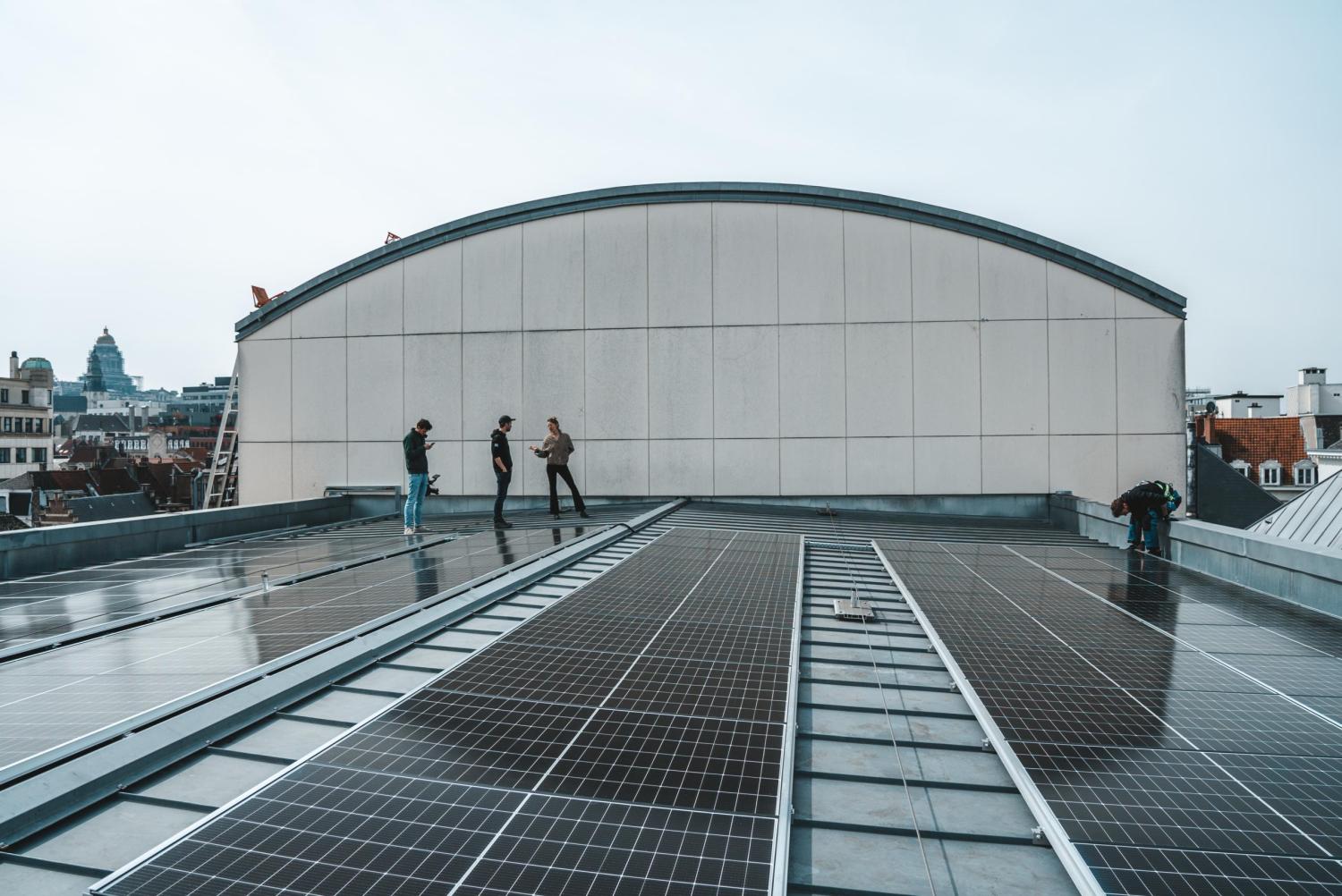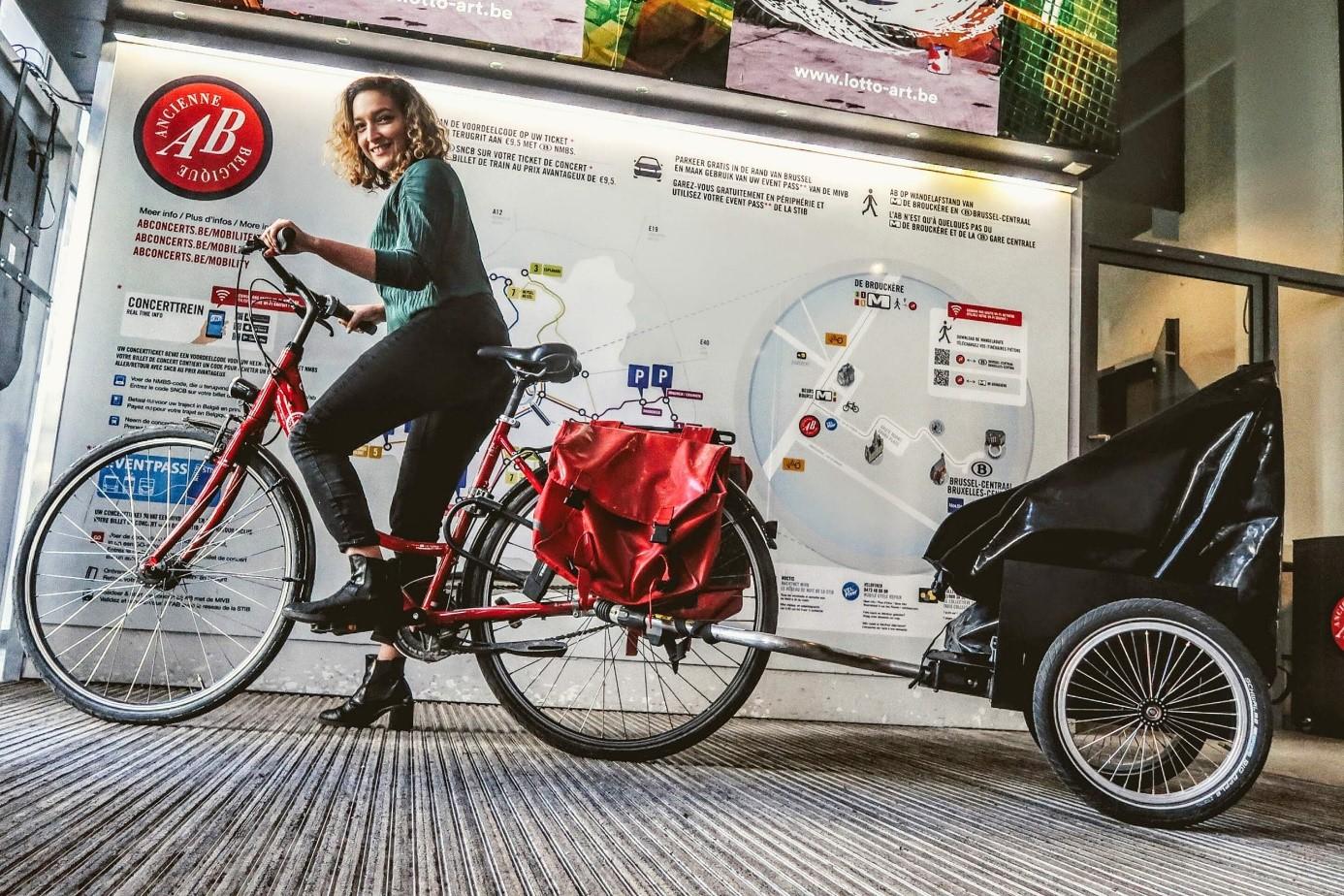
Greener venues: Ancienne Belgique (BE) mixes innovation and audience engagement in their sustainability efforts

In our quest to explore how music venues are fighting against climate change, we interviewed three Liveurope members to learn about their efforts to reduce their environmental impact.
For over 30 years, sustainability has been a major part of Ancienne Belgique’s DNA. The venue’s ecological strategies are a unique combination of innovation and original initiatives, which makes them a source of inspiration in the live music sector.
In this interview, we sat down with Ward Cannaerts, one of the people currently behind AB’s sustainability strategies, to learn more about the venue’s efforts to becoming greener.
AB has a long history of being a front-runner on sustainability. Tell us how the venue started implementing sustainable practices and why it was important for you to do so?
Sustainability has always been part of AB’s DNA. It started in the 90s with the input of the then technical director Marc Vrebos, who was already thinking about how to make the venue more sustainable. We were early-adopters of the reusable cups system and we were also early in engaging in a dialogue with our sponsors to phase out the use of PET bottles. In parallel, we had other less visible initiatives, like using renewable energy in the building. We started developing different actions and every year the team came together for a talk or a strategic session about what are the next steps, and how can we be at the forefront of a greener future.

From the crowdlending campaign to install solar panels to the recycling of water for the toilets, AB is trying to bring an innovative approach to sustainable practices. How important is it to combine innovation with sustainability?
Innovation and sustainability always go hand in hand. We saw it both with the solar panels and the water filtering system. For us, it’s important to include our audience in the equation, for example, we invited them to invest in the solar panels on AB’s rooftop with the Bolt energy platform. We also just launched a new campaign with Recupel, where we asked our audience to hand in their old cell phone to be recycled and, in exchange, they get a free concert ticket. In my view, innovation is also about spreading the word and, step by step, including your audience in all the efforts you're doing.
What do you think are the main challenges ahead?
I think the main challenge now is to have a clear action plan, because we realised that we do a lot, but in a fragmented way. And the step after that would be to create a coordinated action plan with other venues in Belgium and Europe to work on a bigger scale.
We are currently in the process of creating an action plan with A Greener Future. They will help us conduct a general analysis of where we stand with our sustainability efforts and identify the next steps we should take to lower our carbon footprint.
What is the added value of building a sustainability action plan for a music venue?
I think it's important to have a clear action plan with ambitions, a document of 10 to 20 pages where we clearly express our ambitions for the upcoming 5 to 10 years. The goal would be to have a zero-carbon footprint venue by a specific year. And then really divide it in, okay, what are we going to do regarding food? What are the action points regarding mobility? What are the action points regarding artists and bookers? We need a clear division on how we would reach the zero-carbon footprint.
Sustainability is and will continue to be a focal point of Liveurope’s agenda. Why is it essential to address sustainability at a European level?
I think if we really want to make a difference, we need specific rules and measures on a European level. Having them only at a national level is too fragmented. We should also coordinate to exchange knowledge and create a system to support each other. I think the more we keep talking about it on the European level, the more the puzzle gets together, and we can really have a bigger impact on the music sector as a whole.
What do you think is the role of the music sector in the fight against climate change?
In the first place, it is to take responsibility and do everything we do as sustainably as possible. But the most important role for us is to really spread the message. Music and arts really have the potential to move people and can transfer a message in a more human and sexy way than policy makers. If you strengthen your message with music and arts, I think people will be more willing to support the cause, as we saw when we asked our audience to hand in their old cell phones or to invest in solar panels.
Make sure to also check out the interviews with L’Aéronef (FR) on greener audience mobility, and VEGA (DK) on limiting artists fly-ins.



























